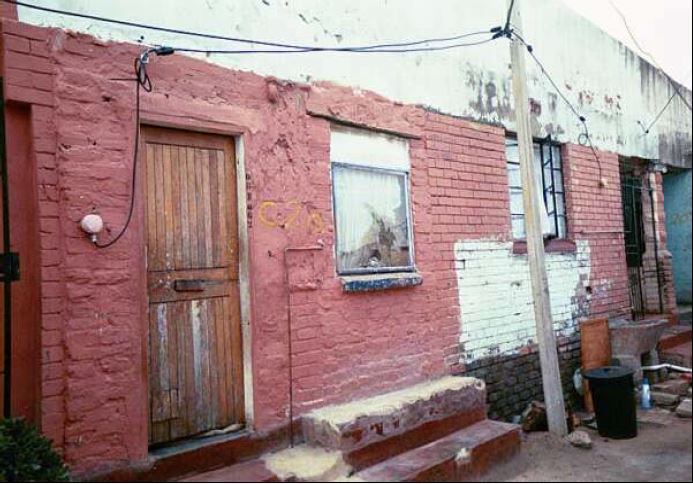Alexandra
A case study of urban renewal for the Presidential 10 year review project

Alexandra’s history is one of rapid urbanisation. People in search of employment in the city have flocked to the area from rural areas in South Africa and neighbouring countries, dramatically overloading an infrastructure already under strain. Congestion in informal settlements, in the hostels and along the banks of the Jukskei River has made living conditions stressful, unhealthy and dangerous. In view of this, President Thabo Mbeki announced in February 2001 that Alexandra was to be redeveloped after several previous efforts to uplift the township were aborted. The estimated budget for the Alexandra Renewal Project (ARP) was R1, 3 billion over a 7-year period.
The Alexandra Renewal Programme (ARP) was born out of the 2000 Business Plan. The Gauteng Department of Housing and being implemented with inputs from various stakeholders including national, provincial and local government, the Greater Alexandra community, non-governmental organisations (NGOs), the private sector and community-based organisations (CBOs), are leading the ARP. It is intended to re-develop and re-habilitate the most pressing and critical service delivery gaps in the township. In this sense, reviewing its activities must be seen as critical to understanding the initial impact of government service delivery as well, as how this can be better measured in the future.
The ARP has been in place for 2 years (April 2001 – April 2003). The project has achieved considerable outputs in improving the township’s infrastructure though it has had to work through the difficulties of community opposition against relocation from hazardous living conditions. At times, project implementation has also been hampered by institutional co-ordination and delivery responses involving various levels of government, probably influenced by the practical challenge of aligning more than one agency budget, inefficient procurement processes and information management in what is a complex yet necessary reporting system. It requires time to be able to judge whether these represent only teething problems or whether the Alexandra Renewal Project will live up to the intentions of the national Urban Renewal Programme to support a more decentralised and people driven approach to urban development in poor areas.
We present below the objectives of the ARP’s mandate to reconstruct and rehabilitate Alexandra, followed by the impacts made. A detailed contextual discussion including specific progress and challenges (both sector, project management and institutional) per delivery sector, follows in the main text of this report.


Comments